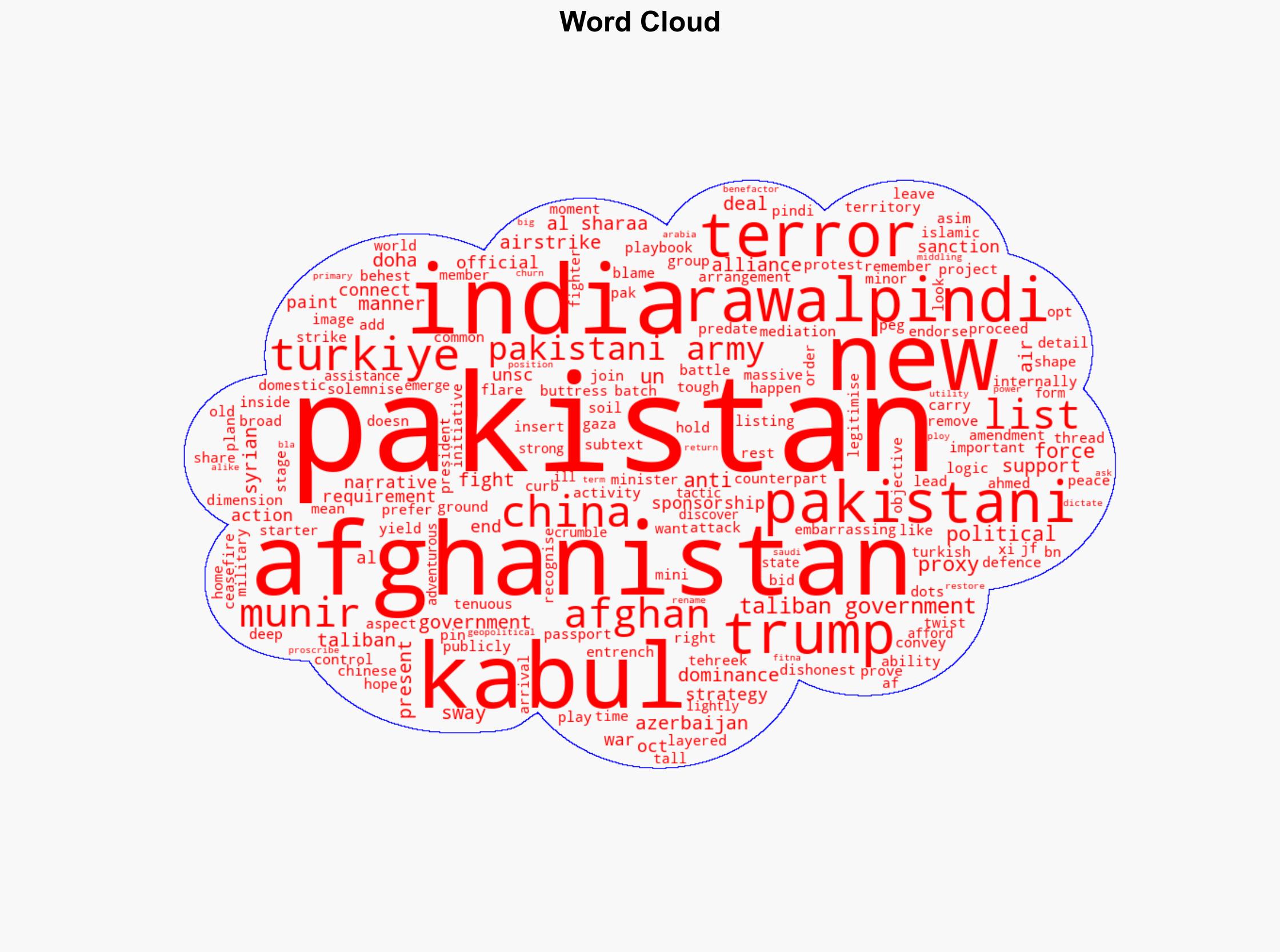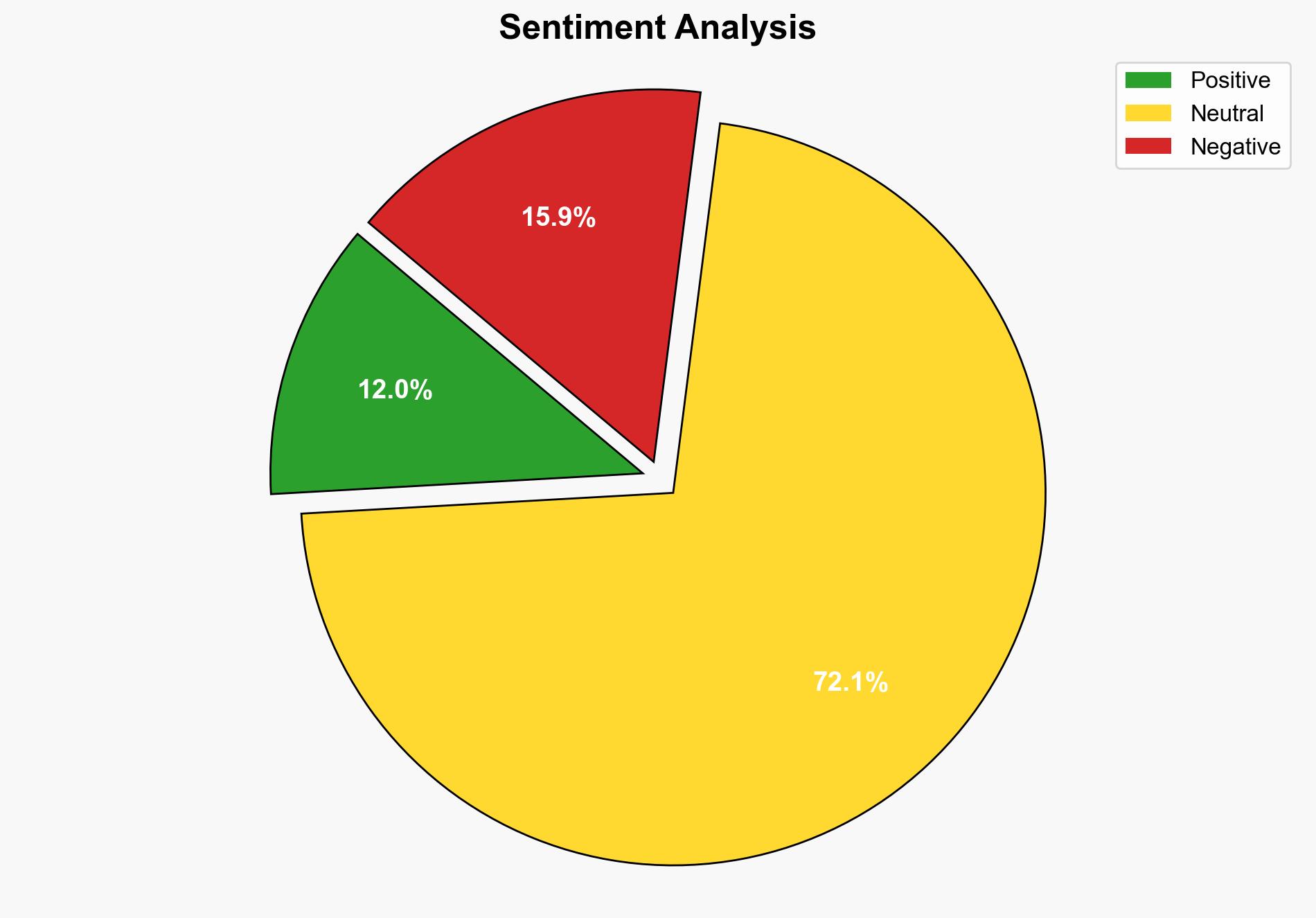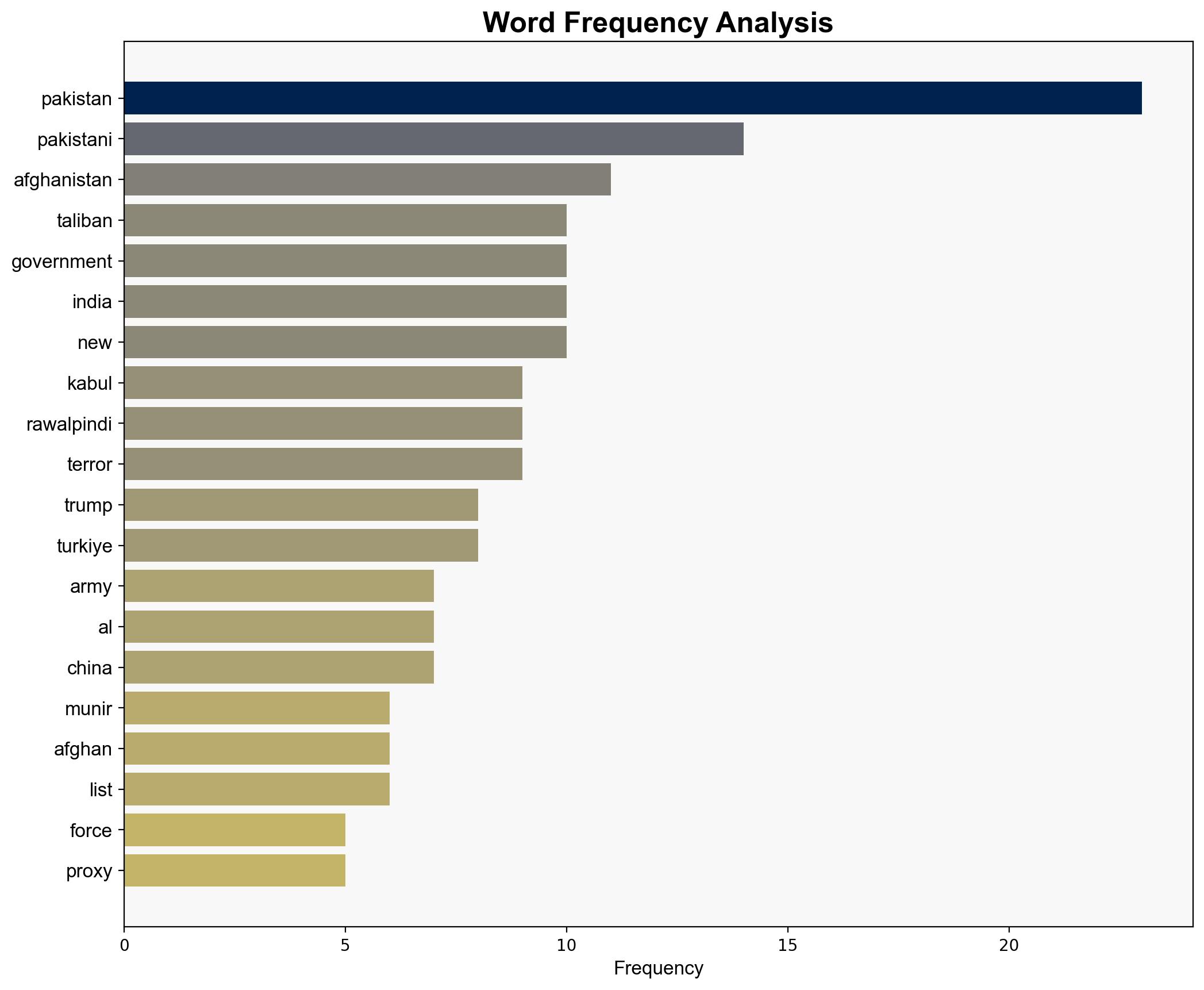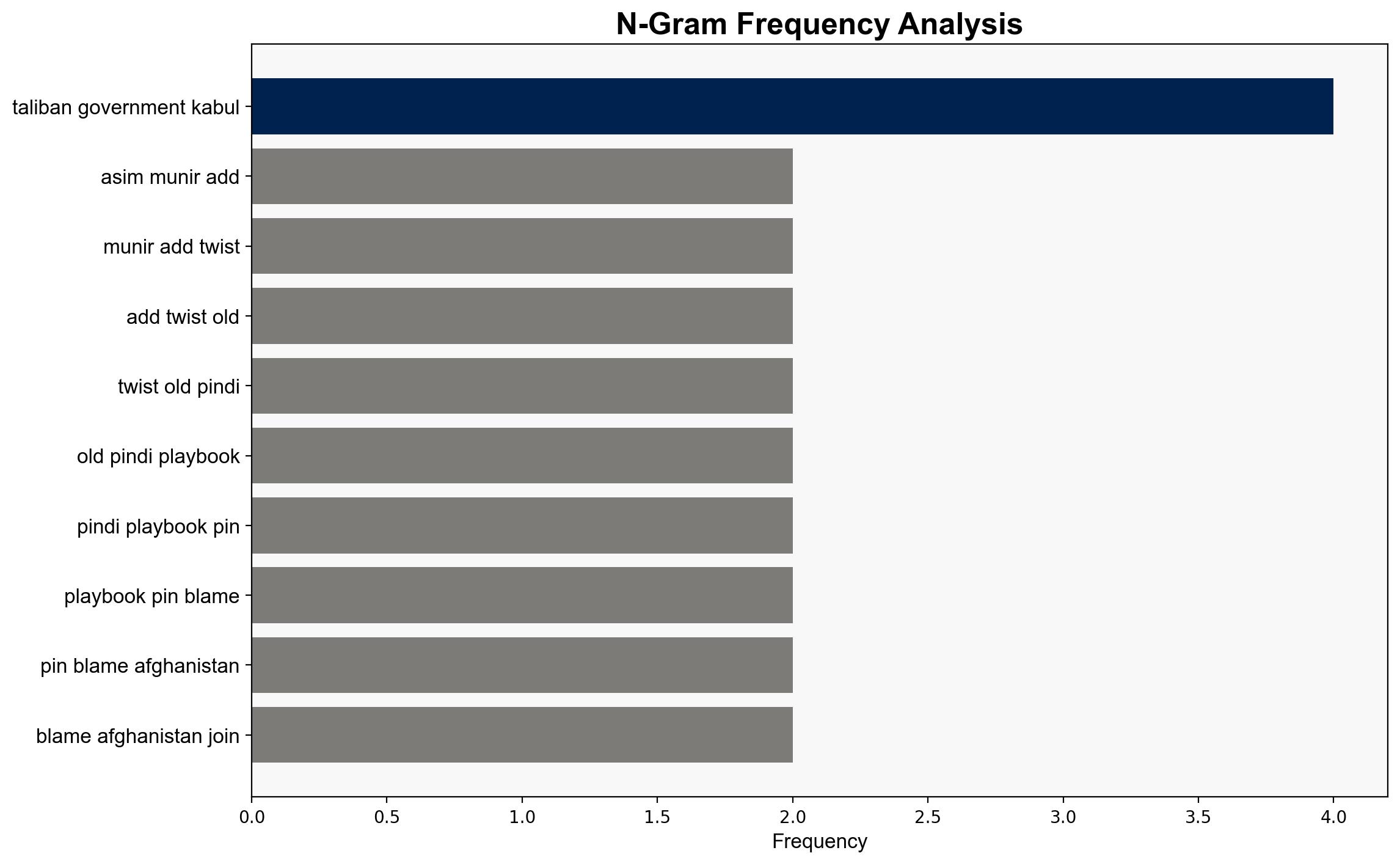Pindi’s Playbook on Kabul Why India can ill-afford to take Pakistans new Afghanistan tactics lightly – The Times of India
Published on: 2025-10-23
Intelligence Report: Pindi’s Playbook on Kabul – Why India Can Ill-Afford to Take Pakistan’s New Afghanistan Tactics Lightly
1. BLUF (Bottom Line Up Front)
Pakistan’s evolving strategy in Afghanistan, characterized by airstrikes and diplomatic maneuvers, aims to reassert influence and counter perceived threats, particularly from India. The most supported hypothesis suggests Pakistan is leveraging its position to strengthen regional alliances and counterbalance India’s influence. The recommended action is for India to enhance its diplomatic engagement and intelligence operations in the region. Confidence Level: Moderate.
2. Competing Hypotheses
1. **Hypothesis A**: Pakistan is primarily focused on countering Indian influence in Afghanistan by portraying India as a proxy sponsor of terrorism, thereby justifying its military actions and diplomatic efforts.
2. **Hypothesis B**: Pakistan’s actions are primarily driven by internal security concerns, particularly the threat from Tehreek-e-Taliban Pakistan (TTP), and are less about India and more about stabilizing its western border.
Using ACH 2.0, Hypothesis A is better supported due to the emphasis on strategic alliances with China and Turkey, and the narrative framing of India as a threat.
3. Key Assumptions and Red Flags
– **Assumptions**: Pakistan believes that portraying India as a threat will consolidate internal and external support. The Taliban government in Kabul is assumed to be under significant Pakistani influence.
– **Red Flags**: Lack of direct evidence linking India to terrorism in Afghanistan. Potential overestimation of Pakistan’s control over the Taliban.
– **Blind Spots**: The actual stance of the Taliban government towards Pakistan’s actions and India’s possible countermeasures.
4. Implications and Strategic Risks
– **Geopolitical**: Increased tension between India and Pakistan could destabilize the region, affecting global economic interests.
– **Economic**: Potential disruption in trade routes and increased defense spending by regional powers.
– **Cyber**: Heightened risk of cyber operations targeting critical infrastructure in India and Pakistan.
– **Psychological**: Escalation of nationalistic sentiments, potentially leading to public unrest.
5. Recommendations and Outlook
- India should strengthen intelligence-sharing agreements with Afghanistan and other regional allies.
- Engage in diplomatic dialogues with Pakistan to de-escalate tensions.
- Scenario Projections:
- Best: Diplomatic resolution leads to regional stability.
- Worst: Military escalation results in broader conflict.
- Most Likely: Continued low-intensity conflict with sporadic diplomatic engagements.
6. Key Individuals and Entities
– Asim Munir
– Taliban Government in Kabul
– Tehreek-e-Taliban Pakistan (TTP)
– China and Turkey as strategic allies
7. Thematic Tags
national security threats, cybersecurity, counter-terrorism, regional focus





